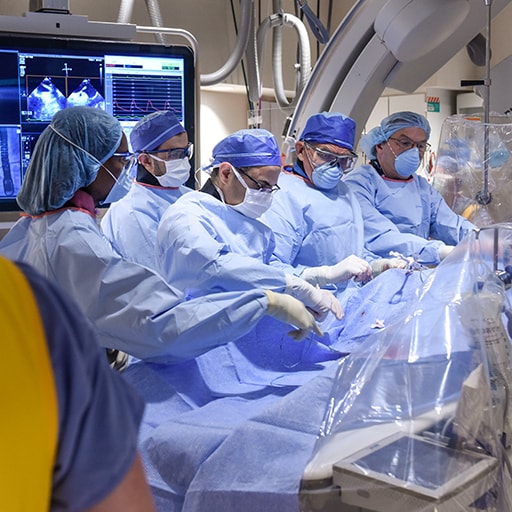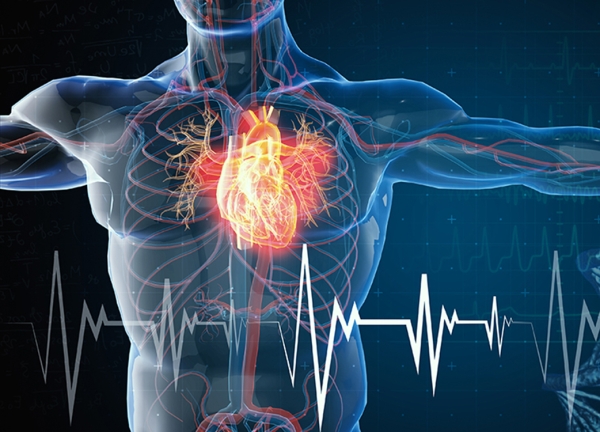Recognizing the Relevance of Cardiology in Modern Medical Care Services
Cardiology plays an important role in modern medical care, particularly as heart problem continues to be the leading reason for mortality worldwide. Advancements in diagnostics and treatment have actually changed patient care, allowing earlier interventions and boosted results. The change in the direction of precautionary cardiology encourages people to manage their health proactively. As technology remains to progress, the combination of cutting-edge solutions may additionally redefine cardiology's influence on public wellness, prompting a better examination of emerging trends and their effects.
The Occurrence of Heart Condition and Its Effect on Public Wellness
Heart illness continues to be the leading reason of fatality internationally, its influence expands much past private clients to influence public wellness systems and economic climates. The high prevalence of heart problem places a substantial stress on healthcare sources, demanding boosted funding for rehabilitation, treatment, and avoidance programs. Public health initiatives should attend to threat factors such as obesity, cigarette smoking, and inactive lifestyles, which contribute significantly to the rising occurrence of heart conditions.Moreover, the financial burden connected with heart condition is immense, encompassing not just direct medical costs however also indirect costs connected to lost performance and early mortality. Communities face challenges in taking care of these prices, frequently leading to differences in medical care access and results. As the populace ages and lifestyle-related dangers proceed to escalate, the seriousness for effective cardiology treatments ends up being vital. Addressing heart disease is not only an issue of individual wellness but also a critical public health concern.
Developments in Cardiac Diagnostics and Imaging Techniques
Recent innovations in cardiac diagnostics and imaging strategies have actually reinvented the field of cardiology, boosting the ability to keep track of and find heart problem. Strategies such as heart MRI, CT angiography, and echocardiography have actually ended up being significantly innovative, providing thorough images of cardiac structures and functions. These techniques enable the early recognition of problems like coronary artery condition, cardiac arrest, and valvular disorders.Moreover, advancements in non-invasive diagnostics, such as wearable modern technology and remote surveillance gadgets, have equipped individuals and doctor. These tools help with real-time tracking of heart rhythms and other important signs, bring about timely treatments. Furthermore, artificial intelligence is being integrated into imaging evaluation, boosting accuracy and efficiency in medical diagnosis.
Technologies in Therapy Alternatives for Heart Conditions
Recent innovations in cardiology have actually led to considerable advancements in treatment options for heart conditions. These consist of innovative surgical strategies that improve procedural outcomes and arising drugs that supply brand-new methods for treatment. As the area develops, these advancements play a vital function in improving client care and outcomes.
Advanced Surgical Techniques
Advancements in surgical techniques have actually transformed the landscape of cardiology, offering new hope for clients with heart conditions. Minimally invasive procedures, such as catheter-based interventions, have actually significantly lowered recovery times and health center remains. Techniques like robotic-assisted surgical procedure improve accuracy, allowing specialists to navigate complex physiological frameworks with greater accuracy. Innovations in imaging technology promote real-time visualization during treatments, boosting results. Transcatheter aortic shutoff replacement (TAVR) exemplifies a breakthrough in dealing with aortic constriction, enabling shutoff replacement without open-heart surgical treatment. In addition, hybrid methods that integrate catheter-based and medical methods supply customized services for different heart issues. These innovative medical techniques not only boost person safety and security yet also expand treatment options, emphasizing the crucial duty of development in contemporary cardiology techniques.
Emerging Drugs and Treatments
As the landscape of cardiology remains to progress, emerging therapies and medications play an essential role in boosting treatment alternatives for heart problems. Developments such as unique anticoagulants and advanced lipid-lowering agents have actually changed the administration of heart diseases, greatly decreasing person morbidity and mortality. Furthermore, the development of genetics treatments and regenerative medicine offers appealing avenues for treating conditions previously deemed irreparable. Clinical tests are constantly revealing the efficiency of these therapies, pushing the boundaries of standard therapies. Furthermore, the integration of electronic health and wellness modern technologies facilitates customized medicine, allowing for customized therapy strategies based on hereditary and way of life elements. Collectively, these innovations underscore the vibrant nature of cardiology, enhancing client outcomes and redefining requirements of care in modern medical care.
The Function of Preventive Cardiology in Patient Treatment
Preventive cardiology plays an important role in person care by concentrating on the identification of risk aspects that contribute to heart problem. With way of living adjustment approaches and early detection techniques, health care carriers can properly lower the occurrence of cardio events - Cardiology. This proactive approach not just boosts patient outcomes however additionally promotes long-term wellness
Threat Element Identification
While heart diseases continue to be a leading source of morbidity and mortality worldwide, effective threat aspect recognition acts as a cornerstone of preventive cardiology. Determining danger aspects such as high blood pressure, hyperlipidemia, diabetes mellitus, and household background is essential for early treatment. Healthcare specialists use numerous screening techniques to review these factors, permitting tailored safety nets. Furthermore, recognizing a patient's way of living options, such as cigarette smoking and physical inactivity, further educates risk evaluations. This detailed examination enables clinicians to create personalized treatment strategies targeted at mitigating risks. By prioritizing danger factor identification, healthcare systems can boost person outcomes and reduce the general concern of cardiovascular illness, ultimately adding to improved public health and wellness techniques and resource allowance.
Lifestyle Adjustment Strategies
A wide variety of researches highlights the crucial role of way of life alteration approaches in decreasing cardio disease risk. These strategies include dietary adjustments, raised exercise, smoking cessation, and weight monitoring. By embracing a heart-healthy diet regimen abundant in fruits, vegetables, entire grains, and lean healthy proteins, people can decrease cholesterol levels and high blood pressure. Normal physical activity enhances the heart and boosts overall cardio health. Furthermore, quitting smoking cigarettes significantly reduces the risk of heart problem and improves recuperation prices for those with present conditions. Weight administration additionally adds to cardiovascular health and wellness by mitigating various other threat variables such as diabetic issues and high blood pressure. Executing these way of life transforms not just promotes private health but also you could try here works as a cornerstone of preventive cardiology in client care.
Early Discovery Methods
Lifestyle adjustments greatly add to minimizing heart disease risks, yet they are most reliable when combined with very early discovery techniques. Preventative cardiology stresses the relevance of recognizing potential heart problems before they rise into significant problems. Techniques such as blood stress tracking, cholesterol screening, and progressed imaging modern technologies like echocardiograms play crucial roles in reviewing cardiovascular health. Biomarkers and genetic testing likewise improve the accuracy of very early discovery, enabling for customized precautionary approaches. Routine cardiac danger analyses empower doctor to step in proactively, potentially preventing cardiac arrest and strokes (Cardiology Jupiter). By integrating these early discovery methods into routine care, clients can benefit from timely way of living interventions and targeted therapies, eventually boosting end results and improving lifestyle
Integrating Modern Technology Into Cardiology Practices
As advancements in technology remain to improve different areas, the integration of innovative devices and systems into cardiology methods has come to be necessary for enhancing individual care and outcomes. Telemedicine platforms allow cardiologists to keep track of patients remotely, boosting access to care while decreasing the burden on healthcare centers. Wearable devices, such as smartwatches, allow continual heart price monitoring, notifying both clients and doctors to prospective problems in real-time. Furthermore, fabricated intelligence (AI) is being made use of to analyze large amounts of heart information, helping in very early diagnosis and tailored treatment strategies. Advanced imaging strategies, including 3D echocardiography, boost visualization of heart frameworks, leading to more accurate interventions. Digital wellness documents (EHRs) streamline patient information management, guaranteeing that cardiologists have instant accessibility to vital data. Together, these technical innovations are transforming cardiology, advertising positive monitoring and enhanced health and wellness end results for clients with cardio problems.
The Significance of Person Education and Involvement
Person education and learning and engagement play a pivotal duty in the management of cardiovascular wellness. By outfitting individuals with understanding about their conditions, therapy choices, and way of living changes, doctor encourage people to take an active role in their treatment. This aggressive strategy can cause enhanced adherence to suggested medicines, dietary modifications, and exercise regimens, eventually minimizing the threat of complications.Engagement also cultivates a solid patient-provider connection, encouraging open communication and trust fund. When people really feel notified and included, they are more probable to voice issues and ask questions, which can bring about much better scientific end results. In addition, educational sources, such as workshops or electronic platforms, can enhance understanding and promote self-management approaches. Overall, prioritizing patient education and interaction is crucial for boosting cardiovascular health, enhancing lifestyle, and lowering health care costs connected with heart diseases.
Future Trends in Cardiology and Their Prospective Influence

Frequently Asked Inquiries
What Way Of Living Changes Can Minimize Heart Illness Danger?
The existing concern addresses try this way of life adjustments that can significantly lower heart disease danger. Dr Garcia. Adopting a well balanced diet, taking part in normal physical task, keeping a healthy and balanced weight, taking care of anxiety, and avoiding tobacco can notably boost cardiovascular health
Just How Can I Acknowledge Very Early Signs of Heart Problems?
Acknowledging very early indicators of heart troubles entails surveillance symptoms such as breast discomfort, shortness of breath, exhaustion, and irregular heartbeat. Prompt awareness of these indications can trigger required clinical evaluation and intervention for far better results.
What Are the Differences Between Cardiologists and Heart Surgeons?
The differences in between cardiologists and heart specialists depend on their roles; cardiologists largely handle and diagnose heart disease via non-invasive methods, while heart doctors do procedures to correct architectural heart concerns. Each plays an important, distinctive duty.

Exactly how Commonly Should I Obtain My Heart Wellness Checked?
The frequency of heart checkup varies based upon specific danger aspects. Typically, grownups need to undergo examinations every one to two years, while those with status quo may call for even more constant evaluations as encouraged by health care experts.
What Function Does Genes Play in Heart Illness Threat?
Genes significantly affects heart disease danger, with familial patterns indicating acquired problems. Details genes can predispose individuals to high blood pressure, cholesterol concerns, and various other cardiovascular troubles, highlighting the relevance of genetic screening in assessing heart health. Heart illness stays the leading reason of death worldwide, its influence extends far beyond specific clients to influence public health systems and economies. Public health and wellness campaigns should resolve threat aspects such as obesity, smoking, and sedentary way of livings, which contribute greatly to the climbing incidence of heart conditions.Moreover, the financial concern connected with heart condition is immense, encompassing not just direct medical expenses yet additionally indirect costs related to shed efficiency and early mortality. Preventive cardiology plays a necessary duty in person care by concentrating on the recognition of risk elements that contribute to heart disease. Artificial knowledge (AI) and device understanding are boosting diagnostics and person monitoring, allowing very early detection of heart conditions. The distinctions in between cardiologists and cardiac specialists lie in their functions; cardiologists primarily manage and identify heart problems with non-invasive methods, while cardiac doctors execute surgical treatments to remedy architectural heart concerns.